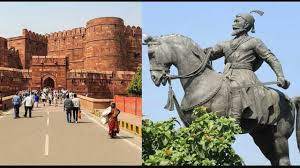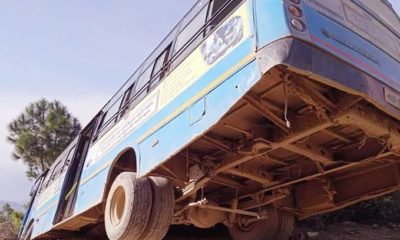Feature
Javadekar sent legal notice on bullock cart races

Agra: Union Minister of state for Environment, Forest and Climate Change Prakash Javadekar has been sent a legal notice by an animal rights activist over the proposed permission to hold bullock cart races.
Animal rights activist Naresh Kadian has served a legal notice to the union minister for the proposed permission for “Bullock Cart Races” in violation of the Supreme Court’s directives in the civil appeals No.5387 and 5391 of 2014.
Kadian has reminded the minister that the central government, through his ministry, had issued a notification July 11, 2011, introducing the “bull” in the list of animals that shall not be exhibited or trained as performing animals.
Thereafter, the Maharashtra government had issued a notification Aug 24, 2011, banning bullock cart races in the state in view of the notification dated July 11, 2011.
Javadekar recently indicated in a press conference that he was open to discussion and granting permission for bullock cart races in Maharashtra, ignoring the Supreme Court’s rulings.
Kadian told IANS that after the Supreme Court judgment, all the issues relating to bullock cart races/Jalikattu are settled and there is no scope for any doubt.
In his notice to Javadekar, Kadian has said that bullock cart races (cruelty to animals through such races) were curtailed to a great extent after the apex court’s judgment.
“Your statement made before the media has resulted in great chaos. The people in the country, especially in Maharashtra, have presumed your word to be final and started organising the races…,” Kadi9an said.
Kadian has appealed to the minister to clarify that his Dec 4 statement should not be construed as a permission for bullock cart races and that the races remain banned.
The Supreme Court in its detailed judgment May 7, 2014, in the related cases concluded that the bulls do not run themselves but they are made to run in bullock cart races, meaning they are subjected to unnecessary pain and suffering. This also means that bullock cart races are, by themselves, cruel to bull since bulls are forced to perform by inflicting pain and suffering on them.
The judgment said the animals have a legal right not be subjected to cruelty under Sections 3 and 11 of the Prevention of Cruelty to Animals Act, and it is the duty of humans under Article 51A (g) of the Constitution not to subject animals to cruelty.
The apex court also ruled that Jalikattu or bullock cart races in Tamil Nadu are not a part of tradition or culture, and such acts are cruel, barbaric, inhuman, and savage and must be prohibited.
Entertainment
Meghalaya Reserves Legalized Gambling and Sports Betting for Tourists

The State Scores Extra High on Gaming-Friendly Industry Index
Meghalaya scored 92.85 out of 100 possible points in a Gaming Industry Index and proved to be India’s most gaming-friendly state following its recent profound legislation changes over the field allowing land-based and online gaming, including games of chance, under a licensing regime.
The index by the UK India Business Council (UKIBC) uses a scale of 0 to 100 to measure the level of legalisation on gambling and betting achieved by a state based on the scores over a set of seven different games – lottery, horse racing, betting on sports, poker, rummy, casino and fantasy sports
Starting from February last year, Meghalaya became the third state in India’s northeast to legalise gambling and betting after Sikkim and Nagaland. After consultations with the UKIBC, the state proceeded with the adoption of the Meghalaya Regulation of Gaming Act, 2021 and the nullification of the Meghalaya Prevention of Gambling Act, 1970. Subsequently in December, the Meghalaya Regulation of Gaming Rules, 2021 were notified and came into force.
All for the Tourists
The move to legalise and license various forms of offline and online betting and gambling in Meghalaya is aimed at boosting tourism and creating jobs, and altogether raising taxation revenues for the northeastern state. At the same time, the opportunities to bet and gamble legally will be reserved only for tourists and visitors.
“We came out with a Gaming Act and subsequently framed the Regulation of Gaming Rules, 2021. The government will accordingly issue licenses to operate games of skill and chance, both online and offline,” said James P. K. Sangma, Meghalaya State Law and Taxation Minister speaking in the capital city of Shillong. “But the legalized gambling and gaming will only be for tourists and not residents of Meghalaya,” he continued.
To be allowed to play, tourists and people visiting the state for work or business purposes will have to prove their non-resident status by presenting appropriate documents, in a process similar to a bank KYC (Know Your Customer) procedure.
Meghalaya Reaches Out to a Vast Market
With 140 millions of people in India estimated to bet regularly on sports, and a total of 370 million desi bettors around prominent sporting events, as per data from one of the latest reports by Esse N Videri, Meghalaya is set to reach out and take a piece of a vast market.
Estimates on the financial value of India’s sports betting market, combined across all types of offline channels and online sports and cricket predictions and betting platforms, speak about amounts between $130 and $150 billion (roughly between ₹9.7 and ₹11.5 lakh crore).
Andhra Pradesh, Telangana and Delhi are shown to deliver the highest number of bettors and Meghalaya can count on substantial tourists flow from their betting circles. The sports betting communities of Karnataka, Maharashtra, Uttar Pradesh and Haryana are also not to be underestimated.
Among the sports, cricket is most popular, registering 68 percent of the total bet count analyzed by Esse N Videri. Football takes second position with 11 percent of the bets, followed by betting on FIFA at 7 percent and on eCricket at 5 percent. The last position in the Top 5 of popular sports for betting in India is taken by tennis with 3 percent of the bet count.
Local Citizens will Still have Their Teer Betting
Meghalaya residents will still be permitted to participate in teer betting over arrow-shooting results. Teer is a traditional method of gambling, somewhat similar to a lottery draw, and held under the rules of the Meghalaya Regulation of the Game of Arrow Shooting and the Sale of Teer Tickets Act, 2018.
Teer includes bettors wagering on the number of arrows that reach the target which is placed about 50 meters away from a team of 20 archers positioned in a semicircle.
The archers shoot volleys of arrows at the target for ten minutes, and players place their bets choosing a number between 0 and 99 trying to guess the last two digits of the number of arrows that successfully pierce the target.
If, for example, the number of hits is 256, anyone who has bet on 56 wins an amount eight times bigger than their wager.























